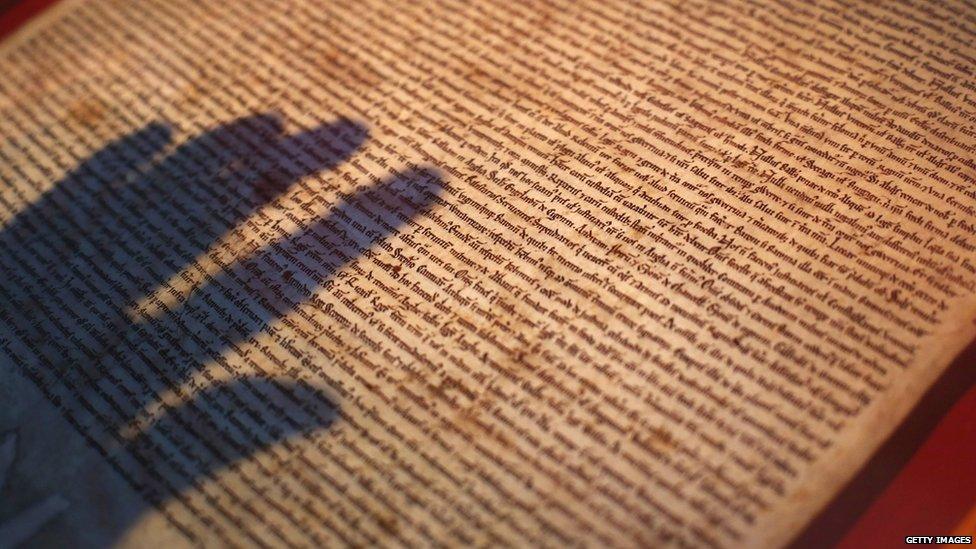The Vocabularist: Where does the term 'Magna Carta' come from?
- Published

Magna Carta - King John's Great Charter whose anniversary is being celebrated - is not the only Latin phrase to have passed un-translated into English, but it is the most revered.
The document was written on sheepskin, but carta (earlier charta or chartes) is an ancient Greek word for a different writing material, papyrus.
In Greek or Latin it could be a sheet, or a scroll formed by sticking a series of sheets together.
Its ashes were used in medicine and it could also mean a sheet of lead - but overwhelmingly its ancient use refers to papyrus and writing, and it is easy to see how this would come to mean any writing, and survive in times and places where papyrus was rarely used.
It is the ancestor of a wide range of words to do with flat things for writing on, including card, chart, cartridge (from Italian cartoccio, meaning a roll of paper) and charter (the r at the end is probably an adaptation of the l in cartula, or little carta).
But as family trees go carta is far surpassed by magna - which is related to a huge array of words beginning with m which denote greatness.
Not only do we get words from Latin such as magnitude (and majority and maximum, and master/magister) from it; its ancient root also gives us mega (from Greek), much and mickle (from Anglo-Saxon and Scandinavian) and Indian terms such as mahatma and maharaja.
Magna and Carta may have been combined almost by accident.
In 1217 John's son Henry III issued the Charter of the Forest - which must have cheered up Robin Hood, as it curbed death and mutilation as punishments for catching the King's deer.
A royal writ of 1218 ordered the publication of this charter, and also a revision of the 1215 charter. It referred to a particular clause about castles "in fine appositum" meaning "placed at the end".
But the scribe must then have realised two charters were mentioned - for the writ is amended to say "in fine magne carte appositum" to show that the clause is in "the great charter", not the Charter of the Forest.
The birth of a historic phrase? If so, it is remarkable that the clause on castles which caused it to be coined is not in John's Magna Carta - only in Henry's revision.

The Vocabularist

Subscribe to the BBC News Magazine's email newsletter, external to get articles sent to your inbox.